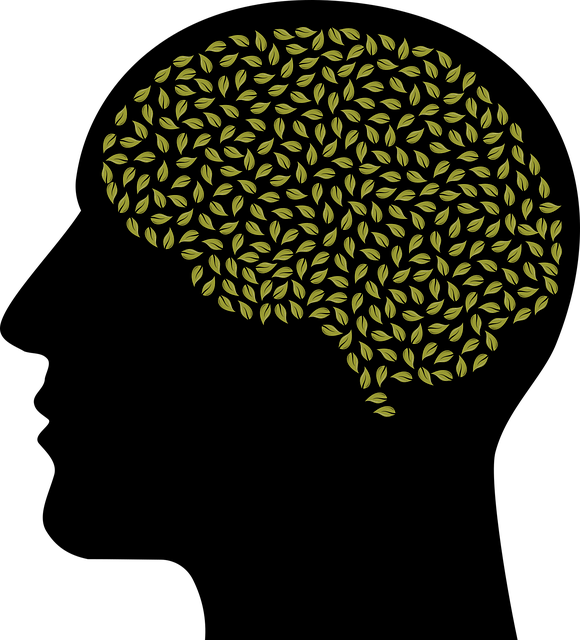Mood regulation in young children with Functional Neurological Disorders (FND) presents unique challenges due to their developing brains. Effective therapy requires understanding neurological mechanisms, compassion cultivation through mindfulness-based interventions like CBT and relaxation techniques, tailored strategies identified through trigger tracking, and supportive environments at home and school. Mental health professionals must conduct thorough risk assessments, advocate for mental health policies, and integrate education programs to empower children with FND to manage their conditions and cultivate lifelong emotional resilience.
Mood regulation strategies are crucial for young children, especially those with functional neurological disorders. This comprehensive guide explores various therapeutic approaches designed to support children in managing their emotions effectively. From understanding the fundamentals of mood regulation and identifying specific triggers, to evidence-based practices like Cognitive Behavioral Therapy (CBT) and mindfulness techniques, each section delves into strategies that foster emotional well-being. Additionally, we discuss creating supportive environments at home and school as key therapeutic spaces.
- Understanding Mood Regulation and Functional Neurological Disorder in Young Children
- Identifying Triggers: Recognizing Patterns for Effective Intervention
- Cognitive Behavioral Therapy (CBT): A Powerful Tool for Mood Management
- Mindfulness and Relaxation Techniques: Calming the Mind and Body
- Creating a Supportive Environment: Home and School as Therapeutic Spaces
Understanding Mood Regulation and Functional Neurological Disorder in Young Children

Mood regulation is a complex process that involves managing and stabilizing emotions to achieve emotional well-being. For young children with Functional Neurological Disorders (FND), this can be particularly challenging as their brains are still developing. FND is characterized by physical symptoms that have no organic cause, often presenting as motor or sensory issues, but can also impact mood and emotional regulation. Understanding the underlying neurological mechanisms at play is crucial in developing effective therapy for young children with FND.
Compassion cultivation practices, a form of mindfulness-based intervention, have shown potential in supporting emotional healing processes in this population. By teaching children to cultivate awareness, empathy, and compassion towards themselves and others, these practices can help regulate mood and reduce the impact of distressing symptoms. A thorough risk assessment for mental health professionals is essential when working with young clients, as FND often co-occurs with other conditions that require careful consideration during treatment planning.
Identifying Triggers: Recognizing Patterns for Effective Intervention

Identifying triggers is a crucial step in managing mood regulation for young children with Functional Neurological Disorders (FND). By recognizing patterns in their behaviors, parents and caregivers can provide effective interventions. Therapy often involves collaborative efforts to track specific situations or stimuli that lead to emotional outbursts or changes in mood. This process allows for the development of tailored strategies.
Mental wellness journaling, a powerful tool, encourages children to express their feelings and reflect on triggers. Exercise guidance and resilience-building activities can also help children identify and cope with stressors. In light of this, mental health policy analysis and advocacy play a significant role in ensuring access to appropriate therapy and support systems for these young individuals.
Cognitive Behavioral Therapy (CBT): A Powerful Tool for Mood Management

Cognitive Behavioral Therapy (CBT) is a highly effective tool for managing moods and has shown remarkable success in treating various mental health conditions, including those in young children. This form of therapy focuses on identifying and changing negative thought patterns and behaviors, which can significantly impact emotional well-being. CBT helps individuals become more aware of their thoughts and feelings, enabling them to challenge and reframe unhelpful cognitions. By teaching practical coping strategies, CBT empowers people to effectively regulate their moods and improve overall mental resilience.
For children with Functional Neurological Disorders (FND), CBT can be tailored to address specific challenges they face. The therapy’s structured nature allows for the development of personalized strategies to manage symptoms like anxiety, depression, or even physical sensations often associated with FND. Moreover, CBT integrates well with mental health education programs designed for both young people and their families, fostering a deeper understanding of mood regulation. Public awareness campaigns on burnout prevention can also benefit from CBT techniques to equip individuals with the skills to navigate stressful situations healthier.
Mindfulness and Relaxation Techniques: Calming the Mind and Body

Mindfulness and relaxation techniques are powerful tools for young children with functional neurological disorders (FNDs) to manage their mood and emotions. These practices help calm both the mind and body, offering a soothing respite from the intense symptoms that can sometimes feel overwhelming. Through simple yet effective methods such as deep breathing exercises, guided visualizations, or gentle yoga, children learn to recognize and regulate their emotional responses.
Incorporating mindfulness into daily routines can significantly contribute to stress management workshops within organizations dedicated to enhancing mental health. Communication strategies taught in these sessions often encourage open discussions about the impact of anxiety and stress on a child’s life. By teaching them to pause, breathe, and observe their feelings non-judgmentally, caregivers and educators can empower young individuals to advocate for their emotional well-being, fostering a sense of self-awareness and resilience that extends beyond therapy sessions and into everyday experiences.
Creating a Supportive Environment: Home and School as Therapeutic Spaces

Creating a supportive environment is a cornerstone in therapy for young children with functional neurological disorders (FND). Both home and school can be transformed into therapeutic spaces that foster mental wellness and promote positive coping mechanisms. In the context of FND, where sensory processing issues and hidden anxieties often play a significant role, structured environments can provide a sense of safety and predictability. Simple adjustments like reducing visual clutter, implementing consistent routines, and incorporating soothing sensory tools in these spaces can make a world of difference.
School itself can serve as an essential tool for crisis intervention guidance, teaching children valuable self-care practices they can use throughout the day. By integrating therapeutic activities into the curriculum, educators can help students develop emotional resilience and learn to manage their responses during moments of stress or distress. This dual approach—nurturing supportive environments both at home and in school—empowers young children with FND to navigate their unique challenges while cultivating skills for lifelong mental wellness.
Mood regulation strategies, especially those tailored for young children with functional neurological disorders, are invaluable tools for enhancing their quality of life. By understanding the intricate relationship between mood and brain function, parents and educators can create supportive environments and employ effective interventions. From identifying triggers to incorporating cognitive behavioral therapy (CBT) and mindfulness practices, each strategy offers a unique approach to managing emotions. Ultimately, these methods empower young individuals to navigate their moods, fostering resilience and overall well-being, while also providing essential support for their therapeutic journey.









